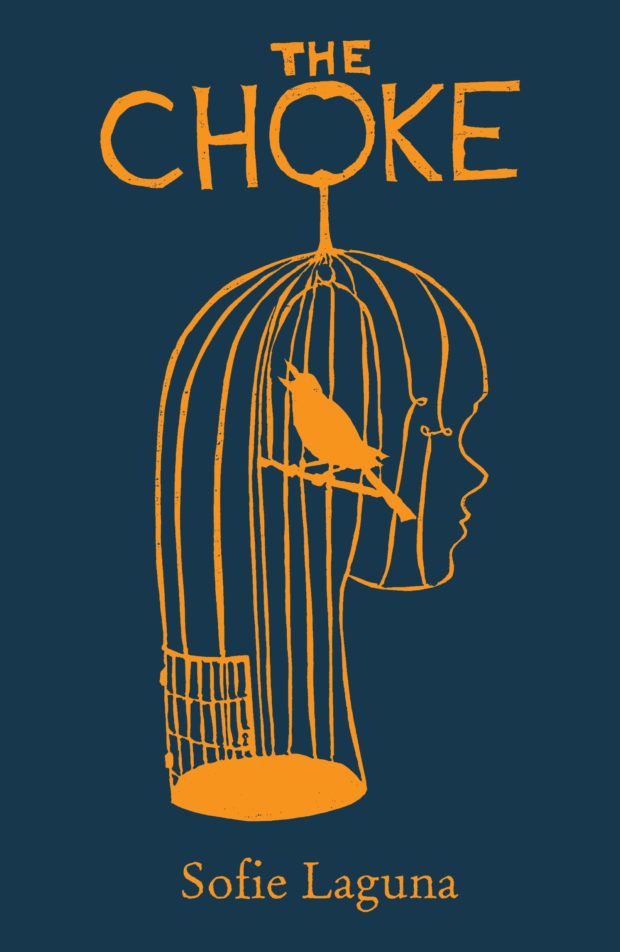You have no items in your cart. Want to get some nice things?
Go shopping
Sofie Laguna’s novel, The Choke, opens with the narrator’s half-brother Kirk chasing her through the scrub with his slingshot: “this is going to hurt,” he yells, before firing. Reader be warned. From the arrival of Ray, Justine’s absent father in the dead of the night, to the Mauser gun locked in the cupboard, the feuding Worlleys on the neighbouring farm, and the Isa Browns scratching in the dust, you know it’s not going to be an easy ride for ten-year-old Justine.
Set in the Australian outback, on the meagre scratchings of “Pop’s Three”, Justine lives with her grandfather, a beer-swilling Korean vet, visited occasionally by her half-brothers, Kirk and Stevie. Rather than offering the fatherly affection or attention Justine craves, Ray’s return only exposes the impossibility of her situation. She’s motherless, dyslexic, and isolated; the only friendship on offer comes from her classmate, Michael, who’s ostracised by the other children because of his disability.
Through “overheard conversations” Justine learns what happened to her mother, to Pop’s wife, about Ray’s history of violence, and the feud with the Worlleys. While she’s too young to understand the significance of these events, or interpret them wisely, by the time Ray arrives at Stacey Worlleys’ door, the reader is well primed to cross their fingers and pray.
The past casts long shadows across the present. Characters are trapped by circumstances, doomed to repeat the mistakes of previous generations, as they bid to break free from a cycle of poverty, addiction and violence. Disparate lives are finely knitted together against the landscape of the Murray River; its scale and sparsity adds to the growing sense of isolation and tension, “We leaned against the fence. A weight hung over us. It was as if the sky was made of the same concrete as Relle’s yard.”
The Choke is rich with symbolism: guns that don’t go off, chooks who dominate the landscape but are caged, eggs which don’t hatch. There’s little kindness or support on offer. Michael must manage his own disability; the half-brothers leave Justine in the lurch when she needs help. Relle ignores her, Rita has her own problems with the family. You’re on your own, so get on with it; the message loud and clear. Yet Laguna deftly avoids sympathy or mawkishness. The narrative is economic and finely tuned. The plot twists and turns, always at least two steps ahead of the reader – from the Mauser in the first act which, as Chekhov so famously said, “must go off by the fourth act” (and it does, but not in a way you predict). The result is an emotionally wrenching story which keeps the reader trailing by the seats of their pants until the last page. Then it delivers the rarest of gifts in contemporary novels, a satisfying and unexpected ending, arising seamlessly from the plot, which manages to extract redemption for Justine, while resisting the temptation to provide all the answers.
Laguna is an accomplished writer of young adult fiction. The Choke is her third adult novel. Her second, The Eye of the Sheep, was shortlisted for the Stella Prize in her native Australia, and won the 2015 Miles Franklin Award (past company includes Patrick White, Tim Winton, Peter Carey). The Choke has already been shortlisted for a slew of awards, all of which it thoroughly deserves.
The Choke is out now from Gallic Books.

About Christina Sanders
Chris Sanders has been writing short stories for over ten years. She has been published in: Writing Women, Quality Women’s Fiction, Peninsular and TQF. In 2011 she won an Arts Council bursary to appraise her first novel, and has contributed to various Arts Council writing projects. At present she is working to complete a collection of short stories on the theme of ‘Compromise.’ Chris Sanders holds a Masters in Education, and is currently working with women from BME communities in Hastings to use storytelling as a way to explore identity and heritage.




